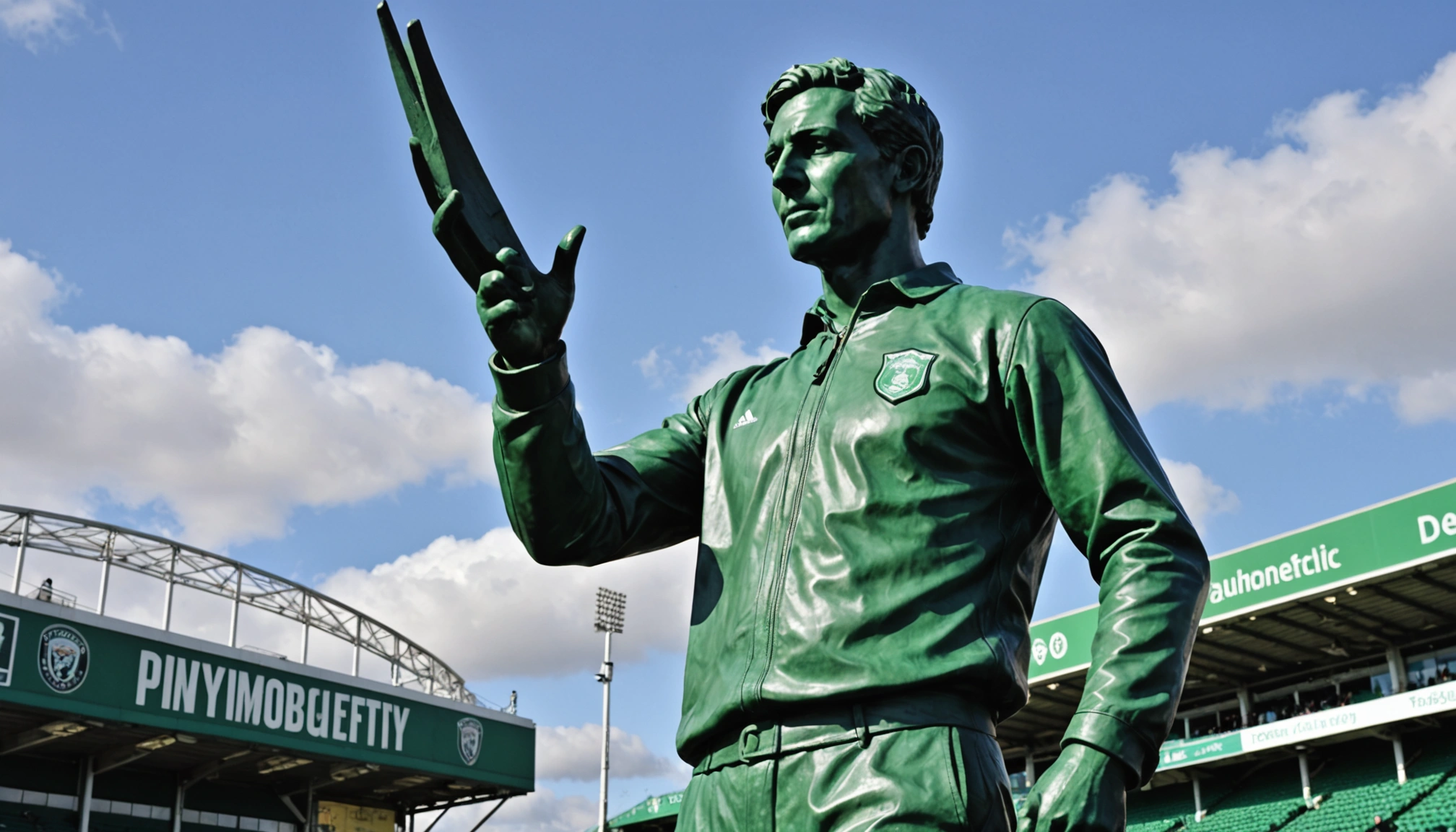Jack Leslie honoured with posthumous England cap for breaking barriers
Jack Leslie, the first Black footballer called up for England, receives a posthumous cap 98 years later, recognising his legacy and fight against discrimination.

By Editorial
Introduction to Jack Leslie's historic recognition
Jack Leslie's story is one of both triumph and tragedy within English football history. In 1925, Leslie became the first Black player to be called up to the England national team, a groundbreaking moment that was sadly marred by racial discrimination. Despite his selection, Leslie was denied the opportunity to represent his country due to the colour of his skin. Nearly a century later, the Football Association has sought to redress this wrong by awarding Leslie a posthumous honorary England cap, acknowledging his pioneering role and the adversity he faced.
Jack Leslie's football career and impact
Born in 1901, Leslie was a talented inside-left who made a significant impact at Plymouth Argyle, where he scored an impressive 137 goals in 400 appearances between 1921 and 1934. His on-field prowess earned him national recognition, but his racial heritage led to his exclusion from the England side despite being called up. This exclusion highlights the racial prejudices prevalent in early 20th century British football.
The scale of Leslie's contribution to Plymouth Argyle
Leslie's career at Plymouth Argyle is a testament to his skill and consistency. Playing over 400 matches for the club, he was a vital figure in their attacking line-up and remains one of the club's all-time greats. His legacy at Home Park is immortalised with a statue unveiled in October 2022, underscoring his importance not just as a player but as a symbol of resilience.
The Football Association's posthumous honour
In a landmark move before England's Euro 2024 qualifier against Ukraine at Wembley, Leslie's family was presented with the honorary cap by the Football Association. This ceremony was more than a symbolic gesture; it was a public recognition of the racial injustice Leslie endured. FA chair Debbie Hewitt emphasised that the award serves to right a historical wrong and celebrate Leslie as a true football legend who helped shape the modern, inclusive game.
The significance of the honorary cap presentation
This presentation, almost 98 years after Leslie's call-up, reflects the ongoing efforts within English football to confront its past and promote diversity. The FA's decision acknowledges not only Leslie's talent but also the courage and determination of his family in ensuring his story is told. It sends a powerful message about the importance of inclusion and the need to confront discrimination at all levels of the sport.
The broader impact on diversity and inclusion in football
Leslie's story is a poignant reminder of the barriers Black players have faced in English football. His recognition has helped fuel a wider conversation about racial equality within the sport. In recent years, football authorities and clubs across the UK have introduced initiatives to tackle racism and create a more inclusive environment for players and fans alike.
Examples of progress in English football
- The Premier League's 'No Room For Racism' campaign has raised awareness and implemented stricter sanctions against discriminatory behaviour.
- The introduction of diversity training programmes for players, coaches, and club staff aims to foster a culture of respect and equality.
- Community outreach projects encourage participation from ethnically diverse backgrounds, helping to nurture talent irrespective of race.
Such steps demonstrate a commitment to building on the legacy of pioneers like Jack Leslie, ensuring football is truly a game for all.
Family legacy and ongoing influence
Jack Leslie's family, particularly his granddaughter Lesley and her sisters Lyn and Gill, have been instrumental in preserving his legacy and advocating for greater awareness of racial discrimination in football. Their efforts have not only honoured Leslie's memory but have also inspired broader societal reflection on equality and justice.
Lesley's presence at Wembley during the cap presentation symbolised the resilience and determination of the family in confronting historical injustices and pushing for positive change. Their story is a powerful example of how personal histories can influence wider cultural shifts within sport and beyond.
Conclusion: recognising past wrongs and inspiring future change
The awarding of a posthumous honorary England cap to Jack Leslie is a landmark moment in British football history. It acknowledges the painful realities of racial discrimination while celebrating the talent and character of a player who paved the way for future generations. As English football continues to evolve, Leslie's legacy serves as a reminder of the importance of equality, respect, and inclusion.
Through initiatives by the Football Association and the passionate advocacy of Leslie's family, the sport is fostering a more welcoming environment for all players. This progress honours the memory of trailblazers like Jack Leslie and ensures that football remains a unifying force in society.
Related topics
Editorial
Sports expert at SportsScoop
Specialist in sports analysis and journalism
Related articles
Want to read more?
Explore our comprehensive collection of sports articles and analysis, or contact us for more information.



